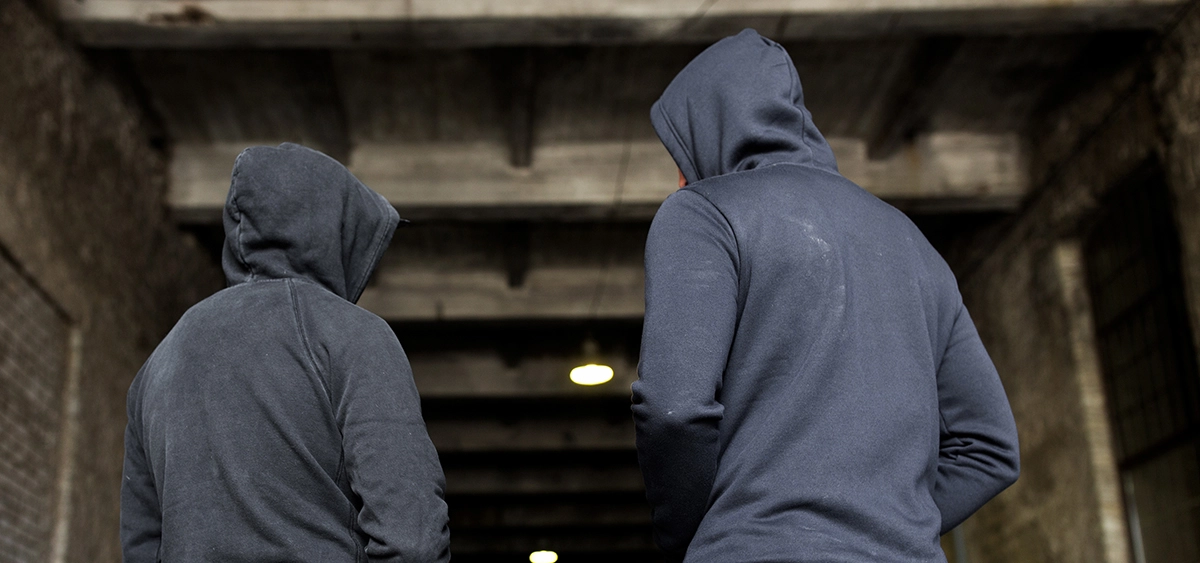You might have friends or acquaintances who break the law. If you’re present when someone else commits a crime, or if you encourage them to do it, can you be accused of a crime yourself?
The law has rules about this. This article explains some of these rules.

Being present when a crime is committed
Just being on the scene when someone commits a crime is not enough for you to be accused of that crime.
Let’s say you’re walking across a shopping centre parking lot with your friends. Two of them decide to smash the window of a car and steal the laptop sitting on the seat. Would this get you into trouble?
As a general rule, no, unless you helped plan the theft, you encouraged your friends to carry out the theft, or you helped them do it.
Being present while someone commits a crime doesn’t necessarily mean that you’re encouraging the other person to commit it. But keep this in mind: advising, encouraging or helping someone commit a crime is itself a crime.
Helping someone commit a crime
If you help someone commit a crime, the law says that you also committed it.
For example, if you were not only there while the laptop was being stolen, but you also acted as a lookout, you’re taking part in a crime. What you’re doing is making it easier for that person to steal the laptop. You are in fact an “accomplice”.
Responsibility for the actions of others
When you commit a crime with other people, you can also be held responsible for what they do and be accused of the same thing.
Let’s say the owner of the car shows up, furious. He tries to take back his laptop. Your friend Samuel whips out his hunting knife and threatens the owner. Even if you didn’t plan on helping, if you keep helping your friends by acting as the lookout, you could be accused of robbery and assault. Yes, you’re responsible for what Samuel did. You could be charged, and a judge could find you guilty, just as if you were the one who took out the knife and threatened the owner of the car.
Planning a crime with others
If you get together with other people to plan to commit a crime, you could be charged with a crime, even if:
- nothing was actually done after the planning stage,
- your plan was never carried out,
- no crime was actually committed, and
- you decided to pull out before the crime was committed.
This crime is called “conspiracy”.
Organized crime
A “criminal organization” is an organized group of three or more people who intend to commit one or more serious crimes, like robbery or drug trafficking, in order to make money.
If you participate in the activities of a criminal organization, you’re committing a crime even if
- what you do is not illegal,
- you don’t know the identity of the other members of the group, and
- you’re not normally part of the group.





